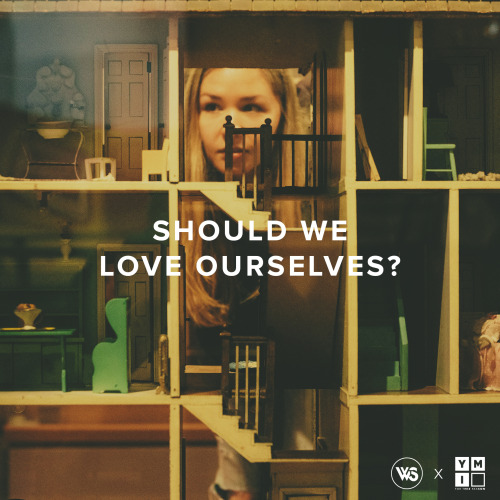#self worth
“good communication is the foundation of anything healthy in a connection, but i appreciate the connections that don’t take many words for something to be felt or understood. i appreciate the connections that hear me beyond my voice and comprehend me deeper than my language”
— iambrillyant
“someone’s toxic traits does not make them a bad person by proxy. some habits get picked up in unhealthy spaces and take time to unlearn, some ideas get wired in childhood and need patience to be unplugged, some people are still finding the courage to outgrow their programming.”
— iambrillyant
“no longer swimming in water that shallows my depth. no longer assuming responsibility of calming waves that i never started. no longer diving deep to reach anyone who’d rather see me drown than see me reach myself. no longer tending to what’s convenient, but only what’s for me.”
— iambrillyant
“you’ve been afraid, you’ve had your fears and anxieties, you’ve felt unheard and misunderstood, you’ve had doubt occupy your space as a frequent visitor, you’ve worried about what the future holds, but in every moment you’ve still shown up anyway—there is power in that.”
— iambrillyant
“it’s the ones who give me the space to be myself, that create more room for themselves in my life.”
— iambrillyant
“some connections fail because the expectations attached to them are unrealistic, and when those expectations aren’t met, we view the other person as the issue when it’s the way we view connections which is really the problem. seeking perfection will poison your perspective.”
— iambrillyant

the sun and her flowers - rapi kaur
Should we Love Ourselves?
Written byJoanna H.of YMI in Collaboration with WTS.
“You really beat yourself up too much. I bet you’re the only one who felt you did a lousy job,” I said to my friend. She had just told me about her stressful experience acting with a stellar cast of veteran actors in her most recent show—which included an embarrassing case of stage fright on opening night.
She was also visibly skinnier—the stress and feelings of inadequacy had led to a dramatic weight loss.
To me, Jean* was an exceptional actress—versatile, convincing, and downright hardworking. In fact, I was blown away by her performance as the lead in her most recent play. But my raving review did little to quell the disappointment she felt. Jean had a chronic case of perfectionism that, to me at least, was neither realistic nor fathomable.
She nodded in agreement. “Well, I think I know what my problem is,” she said. “I don’t love myself enough.”
I heard alarm bells going off inside my head.
Loving Ourselves: The Greatest Love of All?
I’ve been somewhat wary of that phrase for the longest time. It started when my dad made a comment that Whitney Houston’s inspirational hit “Greatest Love of All”—which identifies loving yourself as the greatest love—was neither right nor biblical.
“The Bible never taught us that loving yourself is the greatest love of all,” said Dad. In fact, the Bible nevertalks about loving ourselves (except when it’s used as a reference to how much we ought to love others).
I’ve also observed that “loving yourself” is the mantra used by some who want to live a life which deviates from the norm and which sometimes defies reason and responsibility. You need to love yourself and be comfortable in your own skin. Be proud of who you are. Stop struggling and trying to change yourself. Embrace yourself wholly and unreservedly. It’s an attractive and celebrated way of thinking, especially when it comes to justifying actions and inclinations that we can’t seem to control.
Another reason why I don’t buy into the idea of having to remember to love ourselves is that by and large, it is innate and part of what it means to be human. Most of us already love ourselves; we don’t have to be taught how. Just think of the last time we acted selfishly or used our time, money or resources to satisfy a personal want.
Superiority vs inferiority complex: Two sides of a coin?
But what about people who struggle with inferiority complex, who say that they hate themselves and wish that they were never born? Whitney’s song would seem like the perfect remedy for such individuals.
In his book, The Freedom Of Self-Forgetfulness, Pastor Tim Keller offers an interesting perspective on superiority and inferiority complexes, arguing that the two are essentially two sides of the same coin.
“A superiority complex and an inferiority complex are basically the same. They are both results of being overinflated. The person with the superiority complex is overinflated and in danger of being deflated; the person with an inferiority complex is deflated already. Someone with an inferiority complex will tell you they hate themselves and they will tell themselves they hate themselves. They are deflated. To be deflated means you were previously inflated. Deflated or in imminent danger of being deflated–it’s all the same thing. And it makes the ego fragile.”
Keller’s explanation of how both forms of complexes are interchangeable may be controversial, but it makes sense to me. In fact, it has been an ongoing reality in my own life. Depending on the crowd I’m with, my self-esteem changes accordingly. It grows when I think I’m better than the crowd I’m with, but when I’m with people who have more than me (materially, intellectually, spiritually etc.), I feel small and envious. My self-worth (and self-love) is pegged to how people around me perceive me or how they make me feel about myself. Either way, I’m always focusing on myself.
Keller goes on to contend that our egos hurt so often precisely because they’re constantly trying to draw attention to themselves. Think about the last time we felt hurt or irritated. Was it due to a remark someone made about our intelligence or a realization that we just can’t match up to our own standards, no matter how hard we try?
So, if focusing too much on ourselves is the root problem of our self-esteem issues, loving ourselves more cannot be the remedy, because we’d just be perpetuating the problems associated with focusing too much on our own selves. Rather, we need to learn to care less about what people think about us—or even what we think about ourselves. We need to look beyond ourselves to find true value, worth, and contentment in who we are.
True self-worth: What is it?
So what’s the greatest form of love? If self-centered love is not the remedy to our feelings of inadequacy and low self-esteem, could it be the opposite?
Perhaps that is why the Bible says that the greatest form of love is a selfless, sacrificial one. It is a love that is willing to look beyond ourselves and to the needs of others. John 15:13 says, “Greater love has no one than this: to lay down one’s life for one’s friends.” And this love was perfectly exemplified in none other than Jesus himself, who gave His life to save ours.
Since God showed us the greatest form of love by dying for us, that tells us something about our worth. We are valuable to God—regardless of the state of our self-esteem, or how others or even we feel about ourselves.
So let’s stop thinking that loving ourselves is the remedy to our issue of self-worth—and start looking to the one who determines our true worth.
*not her real name
Post link
“I will never be good enough for everybody. But I am the best for someone who really appreciates me.”— Unknown
love yourself for your flaws, not in spite of them.
i have never loved bits and pieces of a person, wishing i could just discard the rest. my love is whole, given to an entire person, everything included. our flaws and our beauty come together as a package, inseparable; no one should ever be expected to sieve out parts of themselves for anyone else.
in truth, it’s the tiny imperfections that make a person who they are. i find it endearing that my boyfriend often speaks just a little too loud indoors, or that he beats an egg with a spoon (why not use a fork you big buffoon?). i love how my best friend fails to notice details and is one big unobservant, gullible mess, because it makes surprising her so much easier.
and in turn, i try to give that same love to myself, for all of my curves and divets i wish i could just trim off, for my clumsy hands that are always capable of breaking something (always), for the chaotic but beautiful mind i can never seem to switch off. i love myself wholeheartedly, and that includes all of my flaws, each and every one of them.

You’re better than that
here’s a secret: you’re not annoying, I promise! even when you talk about your feelings, even when you ramble on about that thing you found that makes you so happy, even when you need space and have to take time for yourself. you are always loved, even when you feel like you’re at your lowest. no one is judging you for thinking about yourself sometimes. you’re not selfish for taking care of yourself.
I want you to know that it’s okay if all you managed to do today was breathe.
It’s okay if you didn’t manage to get out of bed.
It’s okay if you didn’t get that piece of work done.
It’s okay if you couldn’t socialize today.
I’m proud of you. Tomorrow is a chance for a fresh start. Stay strong and be safe.
not eating means no energy and no energy means not being able to play with small doggies bc ur too weak so please look after your bodies ok do it for the doggies who want to play with u
if you were truly a bad person, you wouldn’t be so hung up on the morality of your mistakes. the fact that you want to go back and make it right means you’re growing from this and you’ll try to do better next time.





